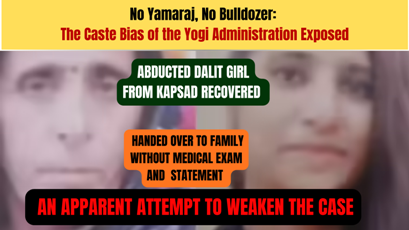New Delhi, September 27, 2025 India’s landmark Right to Information (RTI) Act, once hailed as a powerful tool for transparency and accountability, is now on the verge of collapse. Latest disclosures show that more than 4,00,000 appeals and complaints are pending before the Central Information Commission (CIC) and 28 State Information Commissions (SICs), with citizens waiting up to four years or more for hearings.
Experts say this crisis is not accidental but a direct consequence of government actions since 2014 that have systematically weakened the RTI framework.
Key Figures
-
CIC: 26,000+ pending cases, 8 of 11 posts vacant.
-
Maharashtra SIC: 1,08,641 pending cases, delays over 4 years.
-
Karnataka: 50,000 cases; Tamil Nadu: 41,241 cases.
-
Total nationwide pendency: 4,00,000+ cases, with four SICs (Jharkhand, Telangana, Goa, Tripura) entirely defunct.
-
Corruption link: 30–40% of appeals involve allegations of misuse of funds, fake ration cards, irregularities in welfare schemes, or bribery.
How Government Policies Weakened RTI
Several policy decisions under the Modi government have eroded RTI’s independence:
-
RTI Amendment Act 2019: Made commissioners’ tenure and salaries subject to government control, undermining independence.
-
Digital Personal Data Protection (DPDP) Act 2023: Amended RTI to exempt all “personal information” from disclosure, even when public interest is involved. Activists say this blocks exposure of corruption in welfare schemes and electoral funding.
-
Vacancies and Funding Cuts: 42+ of 165 commissioner posts lie vacant; CIC’s 2023-24 budget was only ₹37 crore, termed “absolutely inadequate” by the Supreme Court earlier this year.
PIOs and FAAs Acting with Impunity
With commissions crippled, Public Information Officers (PIOs) and First Appellate Authorities (FAAs) now function without accountability.
-
91% of cases see no penalty for delays or wrongful denials.
-
Between 2022–24, the CIC returned 36,787 appeals without orders, often due to PIO errors.
-
Applicants report arbitrary rejections citing “privacy” or “confidentiality,” even in matters of clear public interest.
Corruption Cases Hit Hardest
RTI’s original purpose—to expose corruption—is being buried under pendency:
-
Around 1.2 lakh pending cases nationwide are estimated to involve corruption.
-
In Maharashtra, over 40,000 RTIs concern local body corruption, including land and registry scams.
-
In Uttar Pradesh, pending RTIs include farmer suicides and bogus ration card data.
-
Since 2014, 74 RTI activists have been killed, most while probing corruption.
Supreme Court’s Warning
The Supreme Court has repeatedly flagged the RTI crisis, calling the situation a “slow death of transparency” in recent observations. Civil society groups argue that government policies have converted RTI from a people’s weapon into a paper tiger.
What Needs to Change
The report recommends urgent steps:
-
Roll back the 2019 and DPDP amendments to restore independence.
-
Fill commissioner vacancies within three months through transparent processes.
-
Boost funding—at least ₹100 crore for CIC and SICs.
-
Mandate strict penalty imposition on errant PIOs and FAAs.
-
Strengthen whistleblower and RTI activist protection laws.











Leave a Reply